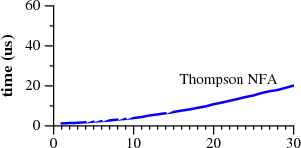


Thus, you can do something like: grep -A 1 bcd myfile abcdef 123 to show the line after the match and grep -B 1 ifl myfile 123 ghiflk to show the line preceding the match. $ time cut -f1 -d' ' text1.txt > text2.txtĪwk is about 3x faster than grep, and cut is about 3x faster than that. 15 The GNU and BSD grep utilities has the a -A option for lines after a match and a -B option for lines before a match. Since you are not doing any complex text pattern matching, just taking the first column delimited by a space, you can use some of the utilities which are column-based, such as awk or cut. I realize this has long since been answered with the grep solution, but for future generations I'd like to note that there are at least two other solutions for this particular situation, both of which are more efficient than grep. SOLUTION (provided by Rohit Jain with further input by beny23): grep -o '^*' text1.txt > text2.txt So for example: AA rough, cindery lava Īfter running grep -o '*' text1.txt > text2.txt, the line above becomes: AA This can be used to specify multiple search patterns, or to protect a pattern beginning with a hyphen ( - ). The garbage text (that I want to remove) can contain anything, including spaces, special characters, etc. Matching Control -e PATTERN, -regexpPATTERN Use PATTERN as the pattern. So I want to keep any/all characters up to and not including the blank space (removing everything from the blank space onward) in each line. The parts I want to keep include capital letters. Trying to piece together from different examples, but I have had no luck. I have tried numerous attempts such as: grep '*]' text1.txt > text2.txt So I was trying to use the grep command in Linux to keep only the characters in each line up to and not including the first blank space. in Perl a -E commandline flag must be used to enable the say function.I have a text file that has the following format: characters(that I want to keep) (space) characters(that I want to remove).However, sometimes, we would like to search for some pattern in a file after a specified line number. This means grep will match either kB or KB as it searches. It tells grep to match any one of the characters contained within the brackets. We’re making use of the regular expression bracket feature to create a search pattern. Indeed, with the power of Regex, grep is good at pattern matching jobs. The -e (patterns) option allows you to use multiple search terms on the command line. A variation is for example, sed -n 's/UUID'\ (.\)'/\1/p'. The sed command could be written in multiple different ways. It removes the UUID bit and all double quotes and then prints whatever is left. in Raku a leading ~ tilde is used to stringify the match object, and Overview When we want to search some patterns in text files in the Linux command line, the grep command would be the first idea. UUID'1ce7ffef-8faa-4138-9b92-466698762f62'.Raku changes capture numbering to start from $0 (Perl starts from $1), 2 Answers Sorted by: 30 For instance: rsOther minor differences include the fact that: The most significant difference is that in Raku all non-alnum/non-underscore characters must be escaped to be 'understood literally' by the Raku regex engine.
#Grab grep pattern after a symbol code
The code above is virtually identical between the two languages.
#Grab grep pattern after a symbol how to
I have played with using sed or awk, but have not been able to figure out how to filter the line to either delete the part before the match, or just return the part after the match, either will work. The portion before and after the match will consistently vary. It need a way to match lines to a pattern, but only to return the portion of the line after the match. So pulling open a file with cat and then using grep to get matching lines only gets me so far when I am working with the particular log set that I am dealing with.


 0 kommentar(er)
0 kommentar(er)
